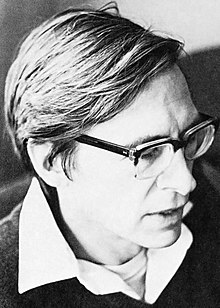The Liberalism portal
Liberalism is a political and moral philosophy based on the rights of the individual, liberty, consent of the governed, political equality, right to private property and equality before the law. Liberals espouse various and often mutually warring views depending on their understanding of these principles but generally support private property, market economies, individual rights (including civil rights and human rights), liberal democracy, secularism, rule of law, economic and political freedom, freedom of speech, freedom of the press, freedom of assembly, and freedom of religion. Liberalism is frequently cited as the dominant ideology of modern history.
Liberalism became a distinct movement in the Age of Enlightenment, gaining popularity among Western philosophers and economists. Liberalism sought to replace the norms of hereditary privilege, state religion, absolute monarchy, the divine right of kings and traditional conservatism with representative democracy, rule of law, and equality under the law. Liberals also ended mercantilist policies, royal monopolies, and other trade barriers, instead promoting free trade and marketization. Philosopher John Locke is often credited with founding liberalism as a distinct tradition based on the social contract, arguing that each man has a natural right to life, liberty and property, and governments must not violate these rights. While the British liberal tradition has emphasized expanding democracy, French liberalism has emphasized rejecting authoritarianism and is linked to nation-building. (Full article...)
Selected article -

The New Deal was a series of domestic programs, public work projects, financial reforms, and regulations enacted by President Franklin D. Roosevelt in the United States between 1933 and 1938, with the aim of addressing the Great Depression, which began in 1929. Roosevelt introduced the phrase upon accepting the 1932 Democratic presidential nomination, and won the election in a landslide over Herbert Hoover, whose administration was viewed by many as doing too little to help those affected. Roosevelt believed that the depression was caused by inherent market instability, and that massive government intervention was necessary to stabilize and rationalize the economy.
During Roosevelt's first hundred days in office in 1933 until 1935, he introduced what historians refer to as the "First New Deal", which focused on the "3 R's": relief for the unemployed and for the poor, recovery of the economy back to normal levels, and reform of the financial system to prevent a repeat depression. Roosevelt declared a four-day bank holiday and implemented the Emergency Banking Act, which enabled the Federal Reserve to insure bank deposits; this was made permanent with Federal Deposit Insurance Corporation (FDIC). Other laws established the National Recovery Administration (NRA), which allowed industries to create "codes of fair competition"; the Securities and Exchange Commission (SEC), which protected investors from abusive stock market practices; and the Agricultural Adjustment Administration (AAA), which raised rural incomes by controlling production. Public works were undertaken in order to find jobs for the unemployed (25 percent of the workforce when Roosevelt took office): the Civilian Conservation Corps (CCC) enlisted young men for manual labor on government land, and the Tennessee Valley Authority (TVA) promoted electricity generation and other forms of economic development in the drainage basin of the Tennessee River. (Full article...)
Selected biography -
John Bordley Rawls (/rɔːlz/; February 21, 1921 – November 24, 2002) was an American moral, legal and political philosopher in the modern liberal tradition. Rawls has been described as one of the most influential political philosophers of the 20th century.
In 1990, Will Kymlicka wrote in his introduction to the field that "it is generally accepted that the recent rebirth of normative political philosophy began with the publication of John Rawls's A Theory of Justice in 1971". Rawls's theory of "justice as fairness" recommends equal basic liberties, equality of opportunity, and facilitating the maximum benefit to the least advantaged members of society in any case where inequalities may occur. Rawls's argument for these principles of social justice uses a thought experiment called the "original position", in which people deliberately select what kind of society they would choose to live in if they did not know which social position they would personally occupy. In his later work Political Liberalism (1993), Rawls turned to the question of how political power could be made legitimate given reasonable disagreement about the nature of the good life. (Full article...)
List of selected biographies
|
|---|
Selected quote
General images
Subcategories
Related portals
WikiProjects
Topics
Recognized content
Associated Wikimedia
The following Wikimedia Foundation sister projects provide more on this subject:
-
Commons
Free media repository -
Wikibooks
Free textbooks and manuals -
Wikidata
Free knowledge base -
Wikinews
Free-content news -
Wikiquote
Collection of quotations -
Wikisource
Free-content library -
Wikiversity
Free learning tools -
Wiktionary
Dictionary and thesaurus


























































